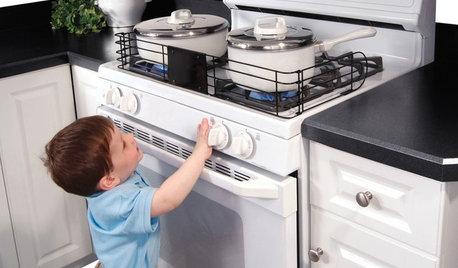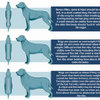What advice to give to someone who has never owned a cat?
newhomeseeker
13 years ago
Related Stories

HOUZZ TVHouzz TV: This Dream Midcentury Home in a Forest Even Has Its Own Train
Original wood ceilings, a cool layout and, yes, a quarter-scale train persuaded these homeowners to take a chance on a run-down property
Full Story
MOST POPULARSo You Say: 30 Design Mistakes You Should Never Make
Drop the paint can, step away from the brick and read this remodeling advice from people who’ve been there
Full Story
HEALTHY HOMEHow to Childproof Your Home: Expert Advice
Safety strategies, Part 1: Get the lowdown from the pros on which areas of the home need locks, lids, gates and more
Full Story
DECORATING GUIDES10 Design Tips Learned From the Worst Advice Ever
If these Houzzers’ tales don’t bolster the courage of your design convictions, nothing will
Full Story
LIFEHouzz Call: What Has Mom Taught You About Making a Home?
Whether your mother taught you to cook and clean or how to order takeout and let messes be, we'd like to hear about it
Full Story
REMODELING GUIDES8 Lessons on Renovating a House from Someone Who's Living It
So you think DIY remodeling is going to be fun? Here is one homeowner's list of what you may be getting yourself into
Full Story
LIFEYou Said It: ‘I’m Never Leaving’ and More Houzz Quotables
Design advice, inspiration and observations that struck a chord this week
Full Story
BUDGET DECORATING21 Free Ways to Give Your Home Some Love
Change a room’s look or set a new mood without spending anything but a little time
Full Story
DECORATING GUIDESBring in da Funk: How Humble Touches Give a Home Soul
Shake up expectations and stir up interest with pieces that show patina, create contrast or offer a jolt of surprise
Full Story
KITCHEN DESIGNA Two-Tone Cabinet Scheme Gives Your Kitchen the Best of Both Worlds
Waffling between paint and stain or dark and light? Here’s how to mix and match colors and materials
Full StoryMore Discussions









calliope
californiangardener
Related Professionals
Bonney Lake Architects & Building Designers · Palmer Architects & Building Designers · Pedley Architects & Building Designers · Stanford Interior Designers & Decorators · Huntersville Furniture & Accessories · Miami Furniture & Accessories · Dumont Furniture & Accessories · Brea Cabinets & Cabinetry · Bradenton Flooring Contractors · Fall River Flooring Contractors · Georgetown Flooring Contractors · Goodyear Flooring Contractors · Miami Flooring Contractors · Saint Louis Park Flooring Contractors · Winter Park Flooring Contractorslaurief_gw
Lily316
sylviatexas1
lfnyc
3katz4me
oregpsnow
stir_fryi SE Mich
sylviatexas1
murraysmom Zone 6a OH
cindyandmocha
camlan
lfnyc